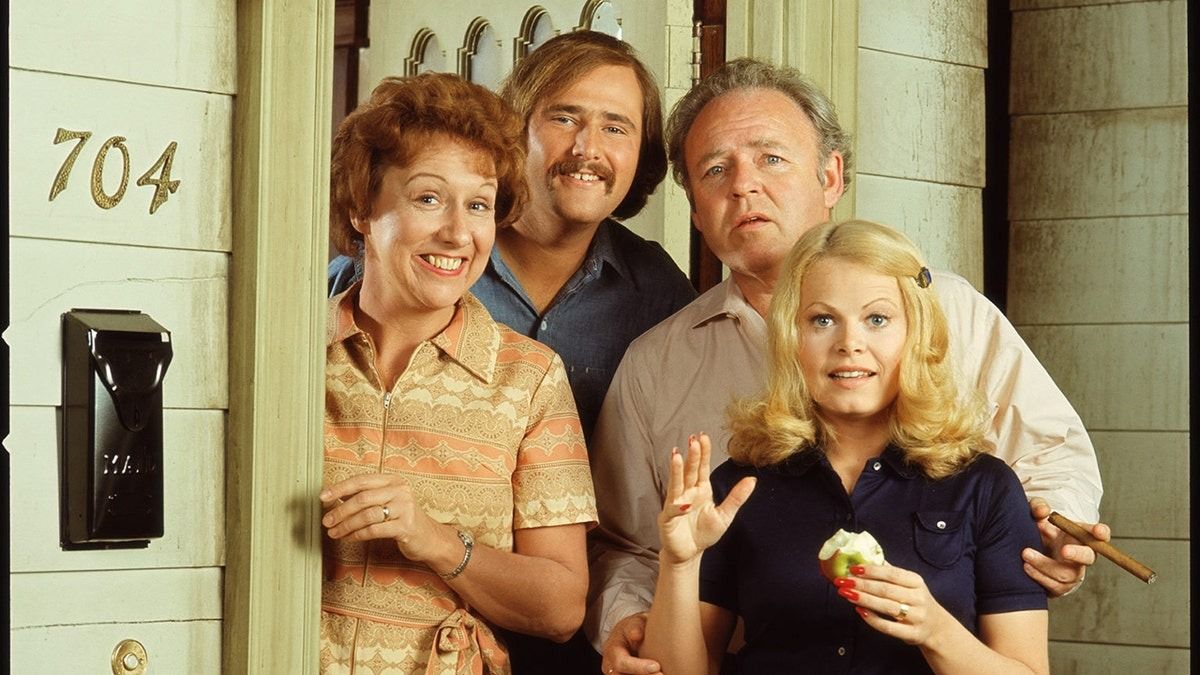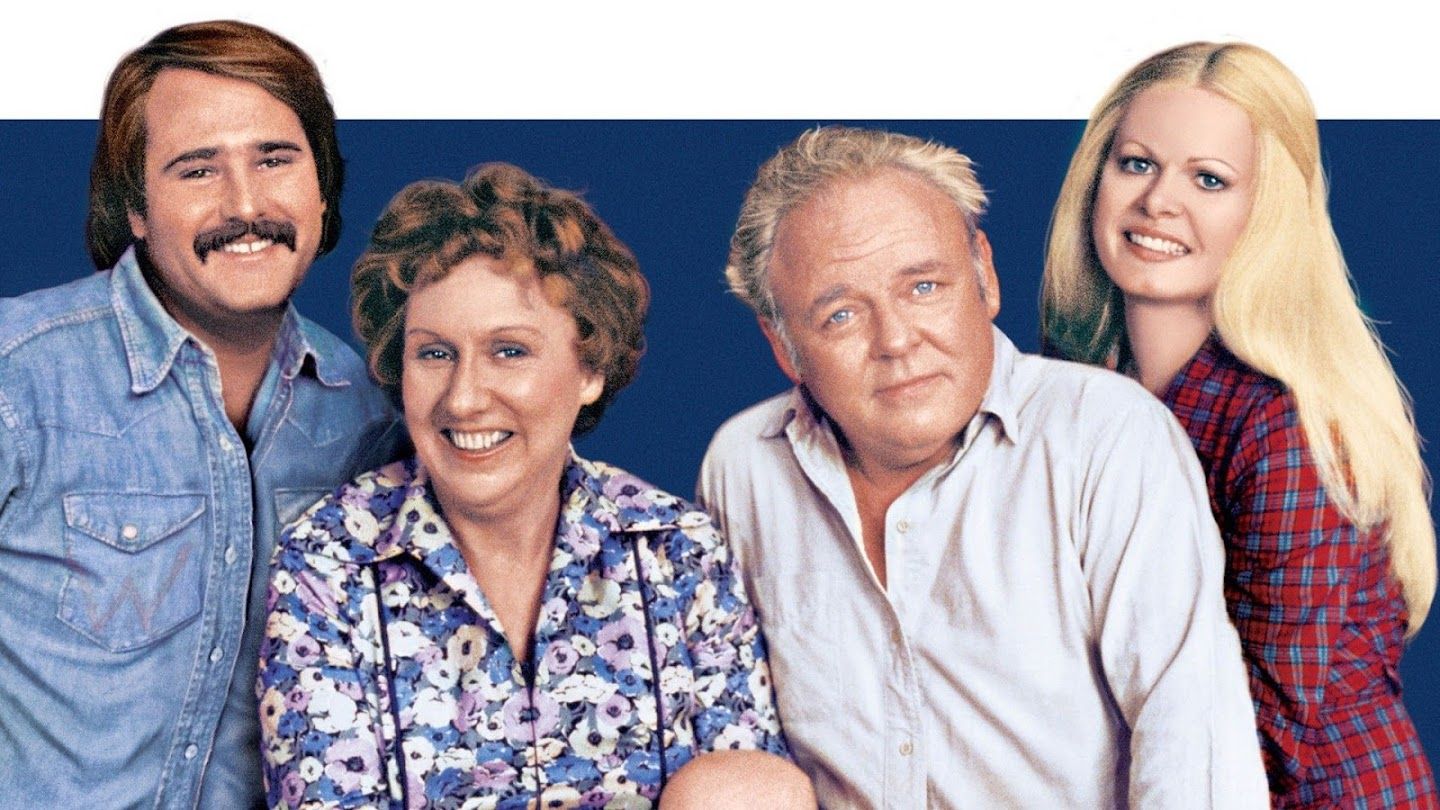
TV LEGEND: All in the Family would routinely protest the fact that the United States government effectively forced the show to change its time slot.
It’s difficult to quite grasp just HOW different the world of television was fifty years ago, and as a result, how different the impact that the Federal Communications Commission (FCC) had on television. There were only three major national networks in the 1970s, and as a result, the FCC was constantly concerned about how much power that ABC, CBS and NBC wielded in the country.
An example of the FCC’s concern over the control of the major networks was the Prime Time Access Rule, passed in 1970 (that went into effect in the 1971-72 TV season), which forced the networks to “surrender” a half hour Monday through Saturday, and a full hour on Sundays (at the time, the networks would schedule programming from 7:30 PM until 11 PM Monday through Saturday, and 7 PM until 11 PM on Sundays) so that the local affiliates would have the freedom to program those time slots themselves, and hopefully come up with some informative local news program. Instead, the local affiliates just turned to syndication for those hours. The networks fought to get those time slots back, and a compromise was reached where networks regained the 7pm to 8pm hour on Sundays, but only for family programming or news programming. This is when CBS moved 60 Minutesto that time slot, and it became a cultural institution. So that change worked out okay, but a change that didn’t work out as well was the push for the “Family Viewing Hour.”
What was the Family Viewing Hour?
Heading into the 1970s, there was a huge anti-violence push when it came to children’s programming. Parents groups had successfully petitioned the government to regulate the children’s programming industry to an almost unheard of degree. The theory, much like that of Fredric Wertman with comic books, was that the violence on cartoon shows was inspiring violence in real life. Thus, it was determined that the cartoons of the 1960s were way too violent for kids, and as a result, a lot of the superhero programs of the era were pretty much dead in the water. When superhero shows popped up again in the 1970s, with the Super Friends, they had famously been watered down dramatically, in terms of the violence depicted on the shows. It is pretty funny when you have Superman on your TV show and all he is seemingly allowed to punch is meteors or asteroids or mountains.
However, in the early 1970s, that same concern was now being levied at prime-time television. A particular lightning rod for debate was the 1974 made-for-TV movie, Born Innocent, starring Linda Blair as a girl who is raped while in a juvenile detention center. The film aired from 8pm to 10pm on NBC, and it drew a great deal of negative attention (a few years later, a 9-year-old girl was raped by a group of children allegedly copying the scene from the film, leading to the girl’s parents suing NBC for $11 million. The case was ultimately dismissed in 1981). FCC chairman Richard E. Wiley approached each network, and one by one, he got them to agree to pledge that, starting with the 1975-76 TV season, they would dedicate the 8pm to 9pm hour to only “family-friendly” television shows. The NationalAssociation of Broadcasters Television Code (thus affecting local affiliates, too, who had to treat the 7pm to 8pm hour the same) was adapted to add:
Entertainment programming inappropriate for viewing by a general family audience should not be broadcast during the first hour of network entertainment programming in prime time and in the immediately preceding hour. In the occasional case when an entertainment program in this time period is deemed to be inappropriate for such an audience, advisories should be used to alert viewers. Advisories should also be used when programs in later time periods contain material that might be disturbing to significant segments of the audience.
This was bad news for the biggest hit on TV at the time, All in the Family.
The iconic Norman Lear-created sitcom, an adaptation of the British sitcom, Till Death Us Do Part, starred Carroll O’Connor as Archie Bunker, a bigoted working class man in Queens, whose daughter, Gloria (Sally Struthers) moves back home with her new husband, Mike (Rob Reiner), while Mike attends college. Archie derisively calls Mike “Meathead.” Archie is married to Edith (Jean Stapleton), his kind-hearted, but ditzy wife. The show would routinely mock Archie’s ignorance, but in the process, we would still see Archie express his intolerant views, so the show was edgy for its time. Originally airing at 9:30 on Tuesday in its first season in 1971, it was moderately successful (it debuted midseason).
However, after being moved to 8pm on Saturday nights in the 1971-72 season, All in the Family shot to number one on the charts, and was finishing its fourth year in a row at the top of the ratings charts when the Family Viewing Hour was agreed to. The show was then moved to 9pm on Mondays starting in the 1975-76 season.
How did All in the Family respond to the time slot change?
The Writers Guild, Directors Guild and the Screen Actors Guild all sued the networks over the Family Viewing Hour on First Amendment grounds. Separately, Norman Lear’s Tandem Productions (the production company he owned with Bud Yorkin that produced All in the Family) sued over All in the Family being forced out of its time slot, moved from Saturdays at 8pm to Mondays at 9pm. The two lawsuits were joined together, and tried jointly.
In November 1976, a judge ruled the Family Viewing Hour unconstitutional, mostly due to the fact that the FCC used behind-the-scenes pressure, and not actual publicly debated rules, to achieve the change. The change made by the National Association of Broadcasters (that affected the local affiliates) was also thrown out, arguing that the association agreed due to duress.
Well before he won his lawsuit, Lear also had the cast of All in the Family do a hilarious short film mocking the Family Viewing Hour, where they all dressed up in fancy clothes, and sang a parody version of the iconic All in the Family theme song, “Those Were the Days” titled “These Are the Days,” discussing how modern television had become so bold and progressive…so long as it was after 9pm, of course.
Sadly, while the rule was dropped in time for the 1977-78 season, All in the Family never returned to the Saturday 8pm time slot. Amusingly, it remained the #1 show in the country for its first season on Mondays at 9pm, but dropped in the ratings after that (it was its seventh season by that point, after all). However, midway through its ninth and final season, it DID move to Sundays at 8pm, and it remained there as the show transitioned into a sequel series, Archie Bunker’s Place, which ran for four seasons in the early 1980s.




